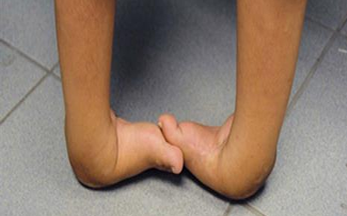Malakia Nashongo
OSHAKATI – Children born with feet deformity, or what is known as club foot, can now have their feet corrected at the club foot clinic at the Oshakati Intermediate Hospital.
Since its inception in 2014, the clinic has made a significant impact on the lives of many children.
Oshana health director Johanna Haimene said the condition is mostly common among boys.
“This clinic plays a major role in reducing the number of people living with disability within our communities – and in the process also alleviate the burden on government for a disability grant,” stated the regional director.
In addition to reducing disability grants, the director said the operation contributes to the physical well-being and equally improves the persons’ morale and self-confidence.
To date, 215 children have completed this programme, and are living a normal life like other children. A total of 169 children are still on the programme, while 27 are on the waiting list.
If a child with a foot deformity is not treated and left to grow with this condition, it will lead to a permanent disability, depriving the child from doing normal things like going to school and playing with other children.
This leads to a high number of people living with disability within the communities and an increase in people registered for a disability grant, placing a huge burden on the government due to a condition that can be corrected through an operation.
In the past, children with this condition were referred to Windhoek, which was costly due to transportation.
Due to high demand from the northern regions, the management of the Oshakati Intermediate Hospital decided to arrange training for its staff to address this challenge and acquire the necessary knowledge and equipment needed to address this condition.
Thus, the foot clinic was opened in 2014 to cater for the northern regions, mainly Oshana, Oshikoto, Omusati, Kunene and Ohangwena and across the border to neighbouring
Angola, as there are cases of children coming in from Angola seeking assistance on foot deformity.
Despite the staff knowledge being strengthened and capacitated over the past years and its success, the clinic is faced with a shortage of staff.
This programme runs for a period of four years and beyond.
*Malakia Nashongo is an information officer at MICT, Oshana.



